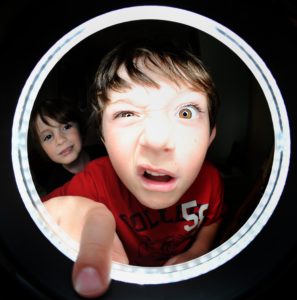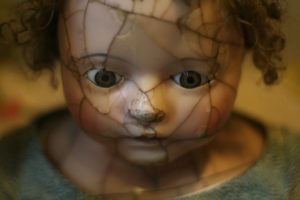by Jenny Rose | Aug 30, 2018 | A Flourishing Woman, Creativity
It’s been a busy week. I haven’t done a lot of writing. Some weeks are about notes, research, sudden creative inspirations, edits and days with a foot in two worlds, the world of the auto shop I’m sitting in this minute with a rattling air conditioner in the window to combat the 100 degree heat index outside while mechanics do surgery on the inside of my old Hyundai to fix the air conditioning, and the world of my imagination.
Other weeks are just about life — activity, interaction with others, appointments, friends and unexpected opportunities, along with the small stories of household and routine, like the AC in the car suddenly ceasing to breathe chill and becoming as thickly humid and overheated as the land’s late August exhalations here in Maine.

Photo by NeONBRAND on Unsplash
A long time ago, when I was a teenager, I got my first job as a summer lifeguard at the local outdoor pool. I loved it. I got trained as a water safety instructor, which means a swim teacher. I was also an IV-certified EMT doing volunteer fire and rescue work.
I’ve never lost my love of water and swimming, and I visit the pool once a week here in Maine. As a regular, I’m familiar with the staff and the facility. A couple of weeks ago one of the pool staff mentioned a part-time position was opening up. Before I left that day I applied for the job and was set up to re-certify as a lifeguard, more than 30 years after the first time. Thirty years. How did that happen?
Now, of course, the process for getting certified is all online. There’s a book, a big, brightly illustrated textbook filled with pictures and graphics, but all the material in the book is also online. The first time around, I learned out of a small paperback manual with black-and-white line-drawn illustrations. The online course is about seven hours of audio, video, multiple-choice questions and written material. At the end, there’s a test. A few hours at the pool in order to practice skills (the most important part) completes the re-certification process.
I’m a good student and confident of my skills, but I unconsciously expected much the same learning experience I had the first time around. However, lifeguarding techniques have changed. The emphasis used to be on personal safety, as drowning people often panic and become dangerous to their rescuers. I spent a lot of practice time in the diving well with a huge college kid built like a tank while he pretended to drown and then tried to drown me as I tried to save him.
Now, there’s great new equipment and gear that make water rescue considerably safer, and the techniques have changed accordingly. Also changed is the way one approaches CPR. When I learned and performed ventilations as a first responder, it was, literally, mouth-to-mouth. Now, lifeguards are equipped with fanny packs in which they carry plastic ventilation masks and Nitrile gloves as protection from body fluids and possible pathogens. Everything, practice included, is done with the mask as a barrier between victim and rescuer.

Photo by Chris Kristiansen on Unsplash
It’s a strange feeling to revisit this information. Lots of memories. I don’t know if I’ll get the job, but even if I don’t I’m pleased about the chance to review. I think everyone should take basic first aid and CPR, and it’s been a long time since I had a refresher. The first time around, I was the youngest lifeguard on the team. This time, if hired, I’ll be one of the oldest. What an interesting circle.
My partner and I love cats. For several years I’ve been uncomfortable with the problem of cat litter disposal. I’ve tried some of the more organic litter, but never found anything both the cat and I liked. The clumping litter is convenient, but I collected it in plastic grocery bags and never found a way to compost it. We’re trying to reduce our use of plastic and our non-compostable waste, and dealing with cat litter has become more and more of a problem ethically. My partner recently came across the idea of using wood stove pellets as cat litter, so we tried it.
I’ve never had a pellet wood stove. It turns out the pellets are small and made of compressed wood scrap, a little bit like animal feed to look at. They’re cheap to buy, especially if you buy a pallet at a time. Cat litter costs three times as much. When they get wet, the pellets dissolve into sawdust. Cleaning the box is like cleaning an animal stall bedded in shavings. I scoop out the damp sawdust and solid waste and throw in a new scoop of pellets. There’s absolutely no smell and less mess outside the box. If our old cat does get pellets between her toes and tracks them outside the box, they’re easy to pick up.
Best of all, we can compost now, and I can stop throwing away any kind of plastic shopping bags. We can switch entirely to canvas bags. Less to haul off to the dump.
My partner has a fleecy polyester blanket in deep, rich colors of brown, black and green that has been a bed for multiple cats for years. We recently cleaned out the little niche it was lying in. I went over both sides with a stiff dry scrubbing brush trying to remove grey and black hair belonging to long-dead cats and then we washed it, but it was still coated with cat hair. I had a lint brush, but that didn’t work at all. I also tried a damp sponge, which is what I’ve always used on upholstery and cloth to remove cat hair. A damp sponge works well if you do it once a week, but this blanket had no attention for years.
So, I googled it. As you can imagine, this is a common problem.
My favorite solution was to obtain a paint roller, wrap the roller in duct tape, sticky side out, and store it, along with a roll of tape, in a closet, bathroom or with cleaning supplies. What a great idea! Fast, easy and cheap. However, I wasn’t sure we had a clean paint roller, so in the end I found a clean plastic dish glove, hung the blanket over the back porch railing, and rubbed it with my gloved hand. I didn’t have much hope, but it worked like a charm. Who knew? Cat hair came away in clumps and clots and floated down onto the grass, as well as adhering to my sweaty face. Too bad it’s not nesting season. I wore out my arm and the blanket looked a lot better, but there was still plenty of hair adhered to it. When I’d rubbed away all I could, I put it in the dryer with a fabric softener sheet on the air setting. A half hour later the dryer trap was filled with cat hair and the blanket was like new.

Photo by Viktor Jakovlev on Unsplash
I also spent part of a day kayaking with a friend on a lake. Too bad I’m not as graceful with paddling as I am swimming. Too bad my arms are about as strong as spaghetti noodles. Too bad I’m so inept the paddles clunk against the side of the kayak with every stroke. Too bad I can’t get the hang of using the paddles without having water run down them and into my lap, or inadvertently bumping my long-suffering friend in the head.
I had a fantastic time.
Then we spent a hot afternoon with an old friend of my partner’s shooting at round metal targets with various firearms and varying degrees of accuracy while I asked a thousand and one questions and continued my education on handling guns safely and developing confidence and skill in using them.
So that, friends, is what I have been doing instead of working on the sort of post I usually write. In the pause from writing, I’ve been refilling the well of creativity with everything, and with nothing. With what it’s like to be alive in the world. With sore shoulders from paddling, remembering old rescue skills and long days on a lifeguard stand in the sun, the challenges and joys of living with cats and the smell of cordite. With spending a morning working in my friend’s farm store chatting to locals, enjoying the animals and studying my lifeguarding manual. With heaving boxes around and shelving books during my volunteer hours in the used bookstore. All of this will somehow, some way, someday recycle into my writing, because everything does.
My car is ready. I’m off to pick up my partner’s laptop at the computer shop in air-conditioned comfort. Then I’ll go home and give this draft another look; decide either to delete the whole thing and start over or get it ready to publish in the morning. I wish you all a good week and a safe Labor Day.

Photo by Karina Vorozheeva on Unsplash
All content on this site ©2018
Jennifer Rose
except where otherwise noted
by Jenny Rose | Jun 7, 2018 | Aging, Connection & Community, Emotional Intelligence
Have you ever had a dream of finding an undiscovered room in a familiar house? I have, several times. I like those dreams. A large piece of furniture moves aside, or I walk into a room I know well and find a new door in it.
Last weekend, my partner and I went to our small local theater and I saw Book Club while he went happily off to Deadpool. (Honestly, I’m so tired of comics, superheroes, space adventures, special effects and unending battles and chases. Whew. It felt good to say that.)
The movie was a relief. I didn’t have to spend most of it with my eyes shut trying to filter out the entirely overstimulating and, at the same time, boring hyperactivity, and it wasn’t excellent. It didn’t require anything from me except to sit back and relax.
No spoilers and this is not a movie review, but Jane Fonda tries way too hard. Instead of marveling at her artificial youthfulness, I felt rather sorry for her. There was also a lot of unnecessary drinking. It didn’t add anything to the story. Some of the humor was more of a wince than a chuckle, but there were some truly funny moments. The writing was a little inconsistent. It’s a movie about connection and being an aging woman.
Overall, I could relate to these four women and I found the movie oddly touching in an unexpected way. I’ve been thinking about it ever since, in fact, trying to understand why it made me feel so bittersweet.
It has to do with giving up. Well, not really. Not giving up, exactly, but settling. No, that’s not quite right, either.
It has to do with gradually forgetting to entertain possibility.
That’s better.

Photo by Joshua Rawson-Harris on Unsplash
We inhabit our lives like a house. It’s a finite space, and we’re intimately familiar with the floorplan, the closets, the windows and the doors. Our house is defined by ourselves and the way we live, and it’s also defined by the external world and people around us. Outside our house is a world where all kinds of potential physical and emotional harm crouches, waiting for us to take a risk and leave our shelter. Outside our house is a wilderness of Unknown.
When we’re young the house of our life is new and exciting. We experiment using the space in different ways. We begin to figure out what we like and don’t like, what works well in our lives and what doesn’t, who we can live with and who we can’t live with. We gradually accumulate furniture in the forms of memories, scar tissue, hand-me-downs, beliefs, and new stuff we find all by ourselves.
The years go by and we learn a lot (hopefully) about the way the world works and who we are. We notice an ever-enlarging population of people younger than we are.
Then, one day, we’re in our fifties. Then our sixties. Then our parents are old. Not older. Old. How did that happen? Then our kids are as old as we were when we had them. It’s entirely disconcerting. We begin to think of ourselves as middle-aged and secretly feel older than that a lot of the time. Then, if you’re a woman, comes menopause, which, just as the onset of menstruation changed everything in the beginning of our lives, remodels our house.
For one thing, we need to tear out the heating system and replace it with cooling and fans.

Photo by Ian Espinosa on Unsplash
By this point in my own life, I’ve made a lot of choices and taken notes on how they worked out. I’ve made decisions about what I will and won’t do, and about what I am and am not interested in. I’ve decided what dreams to discard and interests to drop, because I’m out of time, energy or both. I’ve decided I know exactly who I am, what I’m capable of and what I need and want. I have an entirely private (because it’s shameful) list of things I’ve given up on.
Book Club speaks to the ways in which we begin to limit possibility as we age. In my case, it has nothing to do with age, though. I’ve been slamming doors behind me my whole life. When I was 18, I turned my back on high school. When I was 20, I left residential college, never to return. When I was 21 and got married, I gave up on dating or looking for love. When I was 27 and had my first child, I stopped dreaming of freedom and adventure.
And so on.
Of course deciding we’re never going to do something ever again practically guarantees the Gods will throw it back to us sooner or later, giggling. Now when I hear myself say, “Never again…” I can smile.
An even darker aspect of refusing possibility has to do with the dreams and desires we’ve never fulfilled. I’ve always struggled with financial scarcity. I tell myself nearly every day I’ll never be financially successful, and it doesn’t matter, because I have a good life, I have what I need, I’d rather have my self-respect and integrity than be rich (note the belief one can’t have both), and it’s not a big deal. I say all those things to myself because I don’t see any possibility of financial security. If I haven’t found it following all the rules and working so hard, then maybe I don’t deserve it, or it’s just not something I can earn or have. I don’t want to live the rest of my life hoping for something that never happens.
The story I tell myself is I’d love to find a great job where I could contribute my talents, do meaningful work, be part of a team and get adequately paid. I’m always watching and listening for that job. But I know I’m too old, the things I love to do will never pay well, the kind of thing I’m looking for wouldn’t be here in rural Maine, and I’ll struggle to maintain adequate housing and feed myself forever.
If there’s no possibility, I can work on accepting what is and try to be peaceful.

Photo by Nathan Dumlao on Unsplash
Book Club was redemptive. It reminded me possibility still exists for me. I’ve done things in the last five years I never imagined doing in my wildest dreams. Why do I think it’s all over now? Why do I make so many iron-clad assumptions about the size and shape of my house? Why am I deliberately trying to ditch my dreams? Why do I think of myself as a food item on the pantry shelf with an expired sell-by date?
Am I too old and jaded to invite miracles? Am I too worn out to move a piece of furniture (a bookcase, what else?) and discover a door behind it I never saw before? I know I’ve yet to discover my highest potential.
Maybe I’m just not very brave. I don’t want to fail anymore. I don’t want to be disappointed or feel I’m a disappointment, ever again. I don’t want to be let down, or hurt, or stood up or rejected. I don’t want to look like a fool. (I don’t mind being a fool, but I don’t want to look like one.) I don’t want to be scared.
I don’t want to play power games with people.
Perhaps this is the crust of old age, this gradual accumulation of weariness, scar tissue, limiting beliefs, and physical changes that keeps us sitting in our familiar, safe house, where the edges and boundaries are well-defined and unchanging and we control the dangers of possibility.
Some people successfully shut out life, or shut themselves away from it. I’m never (there I go again) going to be able to pull that off, though. I’m too curious and too interested. An overheard remark, a movie, a conversation, a book or even a song lyric invariably comes along and kicks me back into motion when I’m threatening to lock myself permanently in the predictability and safety of my house. Then I begin to write, and the walls waver and shimmer, new doors and windows appear, a corner of the roof peels away to show me the sky, and I remember I’m still alive, still kicking, still wanting and needing and still, in spite of my best efforts, dreaming of possibilities.

Photo by frank mckenna on Unsplash
All content on this site ©2018
Jennifer Rose
except where otherwise noted
by Jenny Rose | May 24, 2018 | Emotional Intelligence, Feelings
Sometimes being a writer is a pain in the ass.
I had several ideas for this week’s post, but when it came down to it all I produced was something I didn’t want to think about, remember or write about at all. I tried to stop and go back to one of my original ideas, but no matter where I went I ended up in the same place.
I’m old enough to know it’s much easier to ride the horse in the direction it’s going, so I’m writing the damn thing, but I want you to know I’m resentful about it.
Two seeds contributed to this piece. The first is that my partner will be attending his fiftieth high school reunion this summer, and deciding whether or not to accompany him has been a thing for me.
The second seed is the latest (as of this writing) school shooting in Santa Fe, Texas, and the story about the girl (who was killed) who allegedly rejected the shooter and how that may or may not have been part of the motive.
I don’t know what happened between these two young people, of course. I certainly don’t believe everything I read. Perhaps the shooter was bullied. Perhaps he wasn’t. Maybe the girl simply said no, and some people interpret that as bullying. Maybe he refused to take no for an answer and the girl was trying to get the message across with ever-increasing force. I’ve been in a position like that myself. I don’t know, and for the purposes of this post it doesn’t matter.
I think we all can agree we have a problem with school shootings in this country, even if we don’t agree on causes and solutions. I also believe the data gathering, debate and problem solving around this issue is extremely important. Along with everybody else, I have my own opinions about how we got here and what we might do about it, but my opinion isn’t part of this post, either.

Photo by Alex Iby on Unsplash
The reason I’m writing about it (the shooting, one of the alleged triggers for the shooting, and the entire problem of school violence) at all is because of the way it makes me feel.
Sick. Sad. Scared. Angry.
These are the same feelings I’ve had about the entirely trivial decision about whether or not to attend my partner’s high school reunion.
My days in high school were a black time I’ve worked hard to forget. I led a strangely reversed life then, like a photographic negative. My real life was the volunteer fire and rescue work I was doing, my family (including many animals) and reading, the frame around the central core of school. The fire and rescue work often took place at night, of course, and I well remember the fellowship, the macabre hilarity, the practical jokes, and the heartbreak, terror and death we saw on the highway. There were impromptu middle-of-the-night meals at Denny’s after delivering a patient to the hospital, when we were stinking of gasoline and had glass splinters in the knees of our jeans. I was the baby, the youngest, but I was trained and certified and did everything I could to pull my weight.
It was the first time I ever felt I belonged anywhere, or was of any use to the world.
School days, by contrast, were endless bleak hours of clocks, bells, the metallic slam of lockers, figuring out what was necessary in order to maintain straight A’s (which thankfully did not involve much attendance in most cases), and fatigue.
I can’t remember eating a single school lunch in either junior high or high school. Isn’t that strange? I must have, but I have no memory of doing so, or of the cafeterias. What I do remember is the high school library, where there were rows of study carrels — remember those? They were 3-sided square boxes on the desks so that each student was cut off and private, in his or her own little undistracted and unobserved space. I had one particular favorite, the farthest away from the librarian and activity, out of sight, out of mind. It was where I slept. I wore an old hand-me-down men’s quilted navy blue coat that I cherished, and I wadded part of it up as a pillow, pulled the rest over my head and slept for long stretches through lunch and classes.
I was (and am) very organized. I knew what my teachers expected. I always showed up for tests and did all my homework. Papers and projects were planned and completed well before they were due. I did all the reading, homework and classwork. If extra credit work was available, I did that. When I could take AP classes, I did. I never ditched AP English, which I loved. I also went to Latin, another favorite. German was fun, too. I was never any kind of a problem, in class or out of it. Most of the time, I was numb with boredom.
I wished only to remain invisible and maintain a 4.0 grade average. The invisibility was for myself. The grade average was because it was expected of me, and it was easier to just do it than to rebel. Also, I wanted to be finished with school as soon as possible, and the quickest way out was to pass all my classes.
Most of the teachers and all of the students were alien species. I moved among them like a ghost, a wisp of fog. I hardly opened my mouth. I occasionally raised my hand in class for the teachers who required participation for an A, but I’d learned in grade school not to volunteer too many answers, even if I did know them. I dawdled over my tests so as not to be the first one finished. I took pains to keep most of the teachers at a distance so as not to be identified as a “teacher’s pet,” another lesson from grade school.
I was never bullied, though I saw and heard bullying every day. I was adept at blending in and attracting no attention, positive or negative. I didn’t hate the other kids. I didn’t think much about them at all. I didn’t hate the teachers. I even respected a couple of them. I was angry all the time, but it wasn’t focused on anyone in particular, and I only recognize it in retrospect. I didn’t blame the teachers, the kids or my parents for the hell I was in. It never occurred to me there was any other option. Everyone had to go to school, period. My parents were busy people with lives of their own. There wasn’t anything they could have done and I saw no point in whining and complaining.

Photo by Milada Vigerova on Unsplash
The school day was bracketed by a 40-minute bus ride morning and evening, and I did my homework on the bus, which effectively shut out the noisy horseplay, teasing and other socialization happening on it. I always chose a window seat somewhere in the middle and immediately set to work, never looking up from my notebook and books even if someone sat down next to me. If I had no homework, I read.
When I was a senior I finally learned to drive, somewhat unwillingly. I’d seen too much trauma on the highway by then to be enamored of driving. In the end, though, I learned and sometimes I drove our old Chevy truck to and from school, a battered tank of a thing that could cope with any kind of weather and wouldn’t crumple like a tin can at the slightest bump or ding. It was a faded brick red. If I had the truck, I abandoned the library and stretched out on the seat to sleep after parking on a quiet side street, cracking the windows and locking the doors. It felt very safe.
I do remember, as a great treat to myself, buying lunch in town when I had the truck, either at McDonald’s or a little health food store that made wonderful egg salad sandwiches.
Sick. Sad. Scared. Angry.
I remember one student I graduated with. One. I think I remember him because he was also a friend of my brother’s, who was a year behind me, and he was on the summer swim team with me. He was in my AP classes and became a scientist. He wasn’t a friend. He’s just the only one I remember.
On the other hand, I remember the fire station very well, and the rescue barn. I remember the smell of exhaust from the ambulances and big trucks. I remember the little offices where the phone and radio sat on the counter. I remember the meetings, the folding chairs, the scarred tables and the pancake breakfasts. I remember the battered coffee urns and the stained sinks, the water fights, the endless and hilarious practical jokes, the laughter, the weekly meals at the local diner, the parties, the trainings and the people. I later married two of the men I volunteered with in those days (not at the same time, of course!) I remember running up and down ladders for training, the impossible weight of portable water pumps (we called them Indian pumps) for fighting brush fires, the eerie sight of burning trees crowning in a blossom of flame against a dark sky and watching a house burn to the ground. I remember the sour smell of cooling “hot spots” after a brush fire. I remember the live feeling and weight of a charged firehose, enough to knock me over, and the way it peeled the shirt off you during a water fight.
For this treasured, meaningful part of my life, though, there was no acknowledgment. Rather the reverse. It wasn’t quite nice, a teenage girl running around with a bunch of older boys and rowdy, often bawdy volunteers, never mind that I took First Aid, CPR, EMT and IV training and loved it all. It also meant I occasionally showed up in the company of the police at wild parties where someone got hurt or overdosed, which did not endear me to my high school peers. Not to mention that the first dead body I ever saw happened to be one of my schoolmates. I’ll never forget the broken-doll look of him as he lay on the highway, broken glass glittering in his hair under the emergency lights. The only reason it was possible for me to do that work was that my mother did it too. She was quite a good paramedic, in fact.
My experience with high school took place in the late 70s and early 80s. We had a completely open campus. Certainly, things are different now in terms of security, at least. I wonder, though, how many kids are sitting in public schools across the country this very minute who are largely unseen, unheard and simply trying to survive.
Every time a shooting happens we get hours and hours of interviews, social media posts and videos of parents, teachers and students and their perceptions of the perpetrators, and I always wonder — did anyone, does anyone, can anyone really know their student, brother, son, teammate or classmate? How well does a high-school-age kid know him or herself? How much perspective can they have, how much experience in the amazing ways life can change over time? What has been their experience of connection with themselves and others? What is the level of their willingness and ability to communicate? Have they ever, in their whole lives, been given a reason to believe asking for help or telling the truth is useful, rather than making everything much, much worse?
My family cared about me. I remember going to counseling once or twice, both in school and out of it. Do you know what happens to kids who get in-school counseling? They get pulled out of class, right in front of God and everyone. Every single student and teacher in that class knows where they’re going. Not exactly a help when you’re trying to remain invisible. Also, the counselors are just as worn-out and frayed as all the other adults in a school, with an endless array of troubled kids, emergencies, difficult or distraught parents, and they’re trying to support the teachers as well. I was ashamed to be part of their burden and take up any of their time.

Photo by John Salvino on Unsplash
We say some of these at-risk kids who become shooters are identified and “in the system,” and I think many components of “the system” have an honest desire to make a positive difference and work usefully with young people. That doesn’t mean the young person is able to avail him or herself of the support, though. I trusted no one at that point in my life. I wouldn’t have ever told the truth about my private thoughts and feelings. I’d already learned the danger of rocking boats, and I also knew I was privileged because I was smart, we were comparatively wealthy and I had a family that loved me. I had nothing to complain about, and I didn’t. Nothing would have induced me to shame my parents and my extremely intelligent, talented and much more normal and attractive younger brother.
Now, thirty years later, kids are dying, and teachers, and school staff, as well as an occasional parent. We’re trying to understand. Some are trying to find someone to blame, as though that fixes things. But the parents of the shooters aren’t killing these kids. Neither are teachers or security personnel. Bullies and peers aren’t killing these kids. “The system” isn’t killing them, either, or the NRA. The one who pulls the trigger is the killer. I think it’s important to be clear about who’s ultimately responsible. The question is, what came before the trigger was pulled? What are all the intricacies and complexities leading to that moment of choice, and how do we begin to explore that terrain without the input of the shooter, who might or might not survive, and if alive, might or might not tell? If we can ever fully understand, how do we make changes in the roots of parenting, emotional intelligence (or lack thereof), public education (so-called), and our culture’s broken sense of connection and ability to be authentic?
If my school records could be magically produced, what would they show? Straight A’s. Honors student. Maybe a counseling note or two: Isolated, frequent absences, no behavior problems, no sign of abuse or cutting, not a danger to self or others,

Photo by Joshua Fuller on Unsplash
People, that’s a paper doll, not a person. I’m smarter than most people I know. If I’d been a danger to self or others (and I was a certainly actively suicidal), do you think I’d have told anyone? Come on. I know we have social media now, but how much of what shows up on a teen’s social media is Truth? Teens compete, exaggerate, dramatize and make stuff up, just like the rest of us. Often there are clues, but they’re a lot easier to see after the fact, and that’s not much help, is it? It takes years to develop self-knowledge and insight, even if we’re willing to.
Sick. Sad. Scared. Angry.
I’m a parent. When my two sons were teenagers, I worked at the same school they attended. It was a small school and I knew every student, every staff member and most of the parents. I had a whole reality in my head about who my kids were and how they were doing. I loved them with my whole heart. I absolutely trusted them. I frequently knew when they were ditching school, smoking weed or leaving the house in the middle of the night. I didn’t bail them out of consequences or micromanage them. I was a single mom, working desperately hard to keep us afloat and trying to deal with my own experience.
I knew I wasn’t okay, but I wanted to believe they were. I was doing the best I could, loving them as hard as I could and making sure they knew it.
They did know it, just like they knew I wasn’t okay. They weren’t okay, either, but they knew I was doing my best, they didn’t want to burden me and they didn’t really know what they needed for things to get better anyway. Exactly the same position I’d been in two decades earlier.
The truth is, given the right circumstances, either of my boys could have been victims — or shooters. So, in fact, could I. That’s a hard thing to believe and a harder thing to write, but it’s true. Every single one of us has a snapping point, whether we admit it or not. High school can be a place of prison and torture, a place of no hope, an infinite incarceration, a daily experience of humiliation or fear. It can be a nihilistic experience, a daily exercise in powerlessness, in making oneself small, in concealment, in survival.
Sick. Sad. Scared. Angry.
And then there’s the other side of high school. Some amazing people in every class go to endless work and trouble to keep track of their classmates and plan and organize class reunions. For someone like me, this is both astounding and appalling. When my partner told me about his reunion this summer and asked me to come with him, it took me a minute to understand he was serious. Sure, and then can we go get our legs chopped off with a dull blade? Please, oh please?
But I know many people have great memories of clubs and sports teams, teachers and classes, proms and homecomings. My partner has lifelong friendships from high school. Imagine it, 50-year-old friendships! I met my closest friend when I was 30. What would it be like to have that kind of history with another person, that kind of intimacy? What would it be like to know someone liked you enough to be friends with you for 50 years?
Sick. Sad. Scared. Angry.
High school. Guns and reunions. Looking for quick, inexpensive, politically attractive fixes. Heated debates. Demonstrations and walk-outs. Active shooter drills for schools and law enforcement and mass trauma drills for hospitals. Blameshifting, fear, mistrust, profiling. Blood, vigils, funerals and graves. Bullying, mental illness and lasting trauma. Lost kids. Disconnected kids. Dead kids.

Photo by Cristian Newman on Unsplash
The cacophony of debate, press conferences, social media, opinions, interviews, political maneuvering, nonstop news feeds and raw videos goes on and on, and somewhere in the center of the maelstrom is the core of the problem — the young people who shoot, who die and who witness. Some of them have been swept into the hurricane, but I wonder how many are simply sheltering in place, trying to survive another bewildering, hopeless, pointless day of tech, teachers, rules, grades and peers. I know they’re there, because I was one. They could tell us a lot about futility, despair and disconnection. They’re keeping painful secrets. Are we willing to hear their truth? Do we deserve their trust? Do we have time or energy for them? Can we change anything for the better? Or would we tell them to get over it, that everyone has to do things they don’t want to do, that high school will be over one day? Do we paste a neat label on them and write a prescription? Do we insert them into a “system,” because that’s the best we have, and turn away to deal with our own jobs, responsibilities, stresses, scar tissue, labels and prescriptions?
I’m back where I started.
Sick. Sad. Scared. Angry.

Photo by Aimee Vogelsang on Unsplash
All content on this site ©2018
Jennifer Rose
except where otherwise noted













